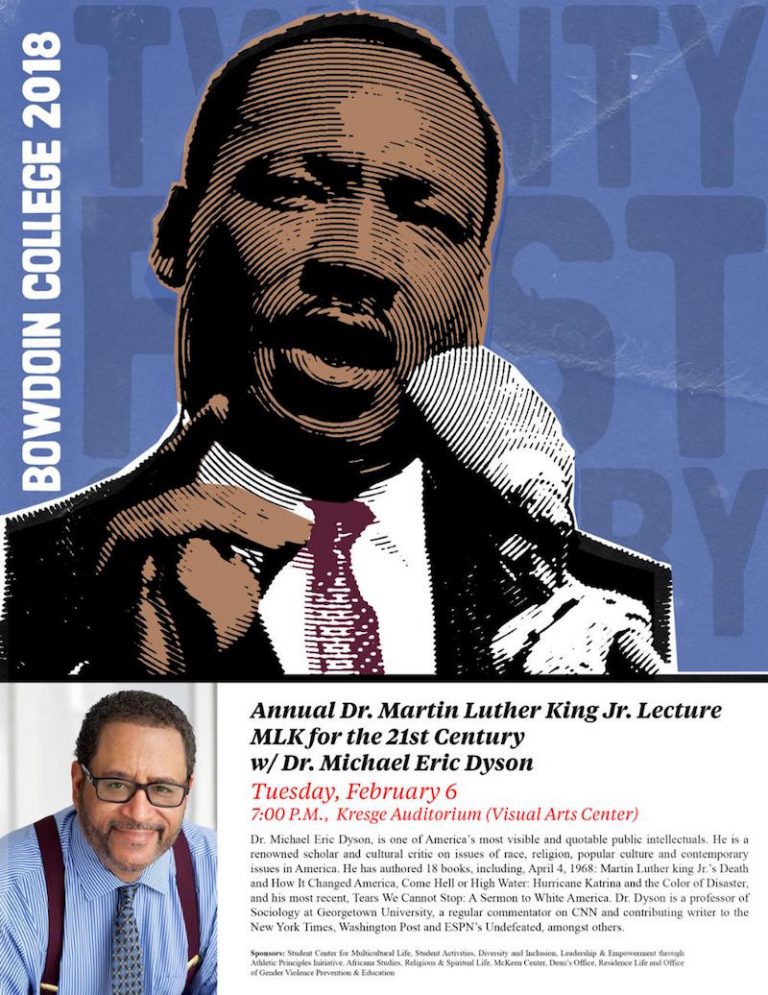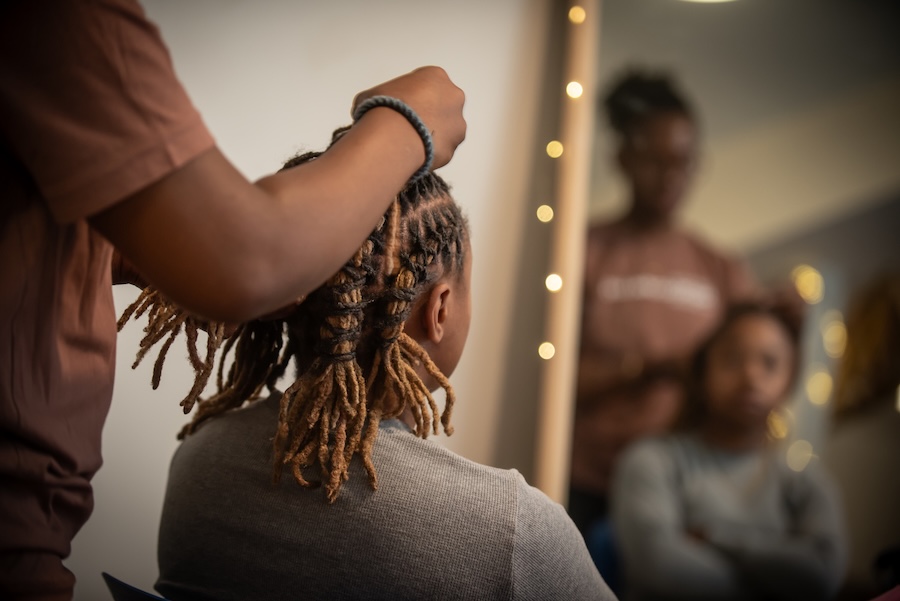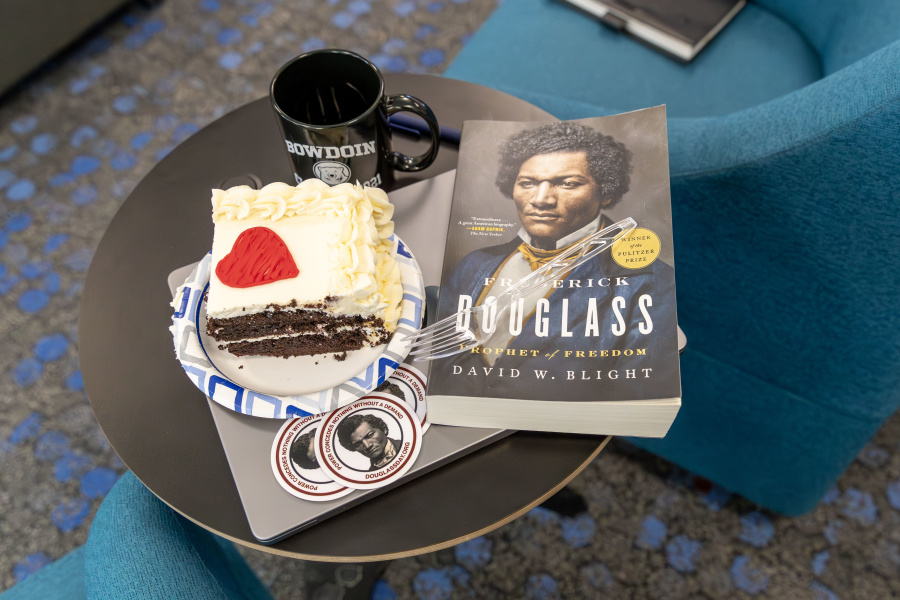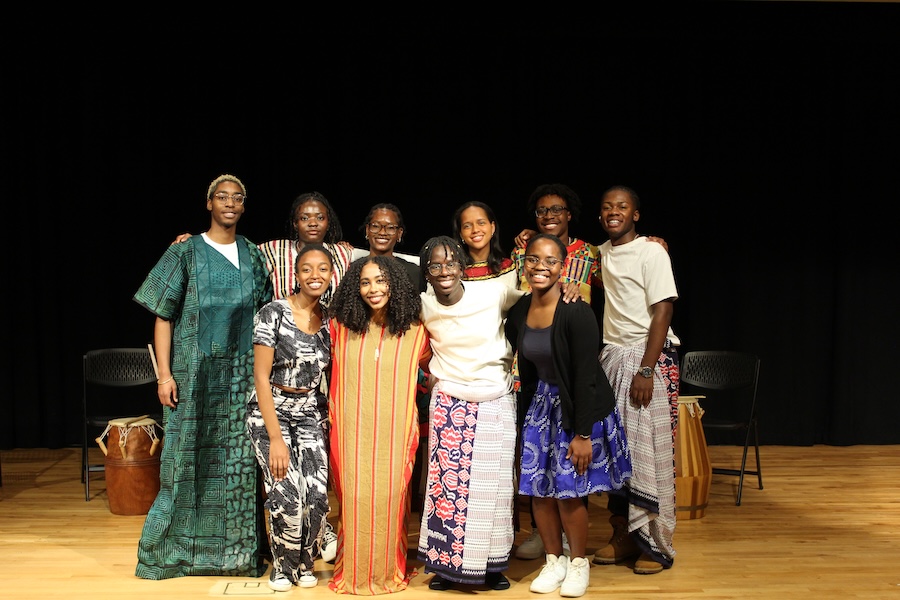Black History Month Speaker Brings MLK's Message to the Present
By Philip Kiefer '18








At one point during his talk at Bowdoin, Dr. Michael Eric Dyson said the goal for his activism echoes that of Dr. Martin Luther King Jr.: “All I ask America is, be true to what you said on paper….If you talk about independence, let everybody experience it. If you talk about justice, let everybody have it. If you talk about equality, let it be equally shared.”
Dyson, a professor of sociology at Georgetown University and prolific author, delivered this year’s Martin Luther King Jr. Lecture to an overflowing Kresge Auditorium on Tuesday night. His talk, “MLK for the 21st Century,” was far reaching in tone and scope, bringing Dr. King’s words to bear on not only contemporary police violence, but also sexism, homophobia, and sexual violence.
The talk was opened by Alana Morrison ’20 and Osa Fasehun ’18, who led the crowd in singing “Lift Every Voice and Sing.” The spiritual nature of that opening moment was echoed throughout the talk. Dyson used the literal words of Dr. King’s final sermon, delivered to a congregation in Memphis on the night before his assassination, and he also drew on the emotional dynamism of a preacher — albeit one quick to be irreverent and funny — to make his point.
For Dyson, there is little distance between Dr. King’s 1968 words and the injustices of the present, and no distance between oppression of any type. In the space of a breath, for example, he turned his attention from violence against black Americans to Islamophobia.
So how Martin Luther King’s message bears on our times now, in the 21st century, has not actually changed much from the previous one. All people — no matter their race or religion — desire the same thing: to be included in America’s promises, payoffs, and virtues, Dyson said.
“If we want to see King for the 21st century and we want King to be the inspiration to make America America for those whom it has been denied…first of all we have to deal with the persistence of racism,” he said.
He asked the audience to remember the murders of young black people, including Emmett Till, at age 14, in 1955, and Trayvon Martin, age 17, in 2012. Martin would have turned 23 this month.
As he continued, his voice became more and more raw: “A young man, murdered, I would argue, for no other reason than he looked out of place, because he ain’t got no right to be in a suburb of Miami.”
And, as with racism, we must grapple with the persistence of misogyny and try to end sexism. “Women who are strong, and assertive, and independent should be embraced as an extension of King’s making America America,” he said. “Women of color, black women in particular, and women are still dragging us to freedom today. If King’s dream will be fulfilled, it will be in part because they have dragged us there, not only against our wills but to the best advantage of our destinies.”
Quoting Dr. King, Dyson said, “Injustice everywhere is a threat to justice everywhere.” Which means, according to Dyson, that we “have to challenge all the stuff that is maddening about America.”



